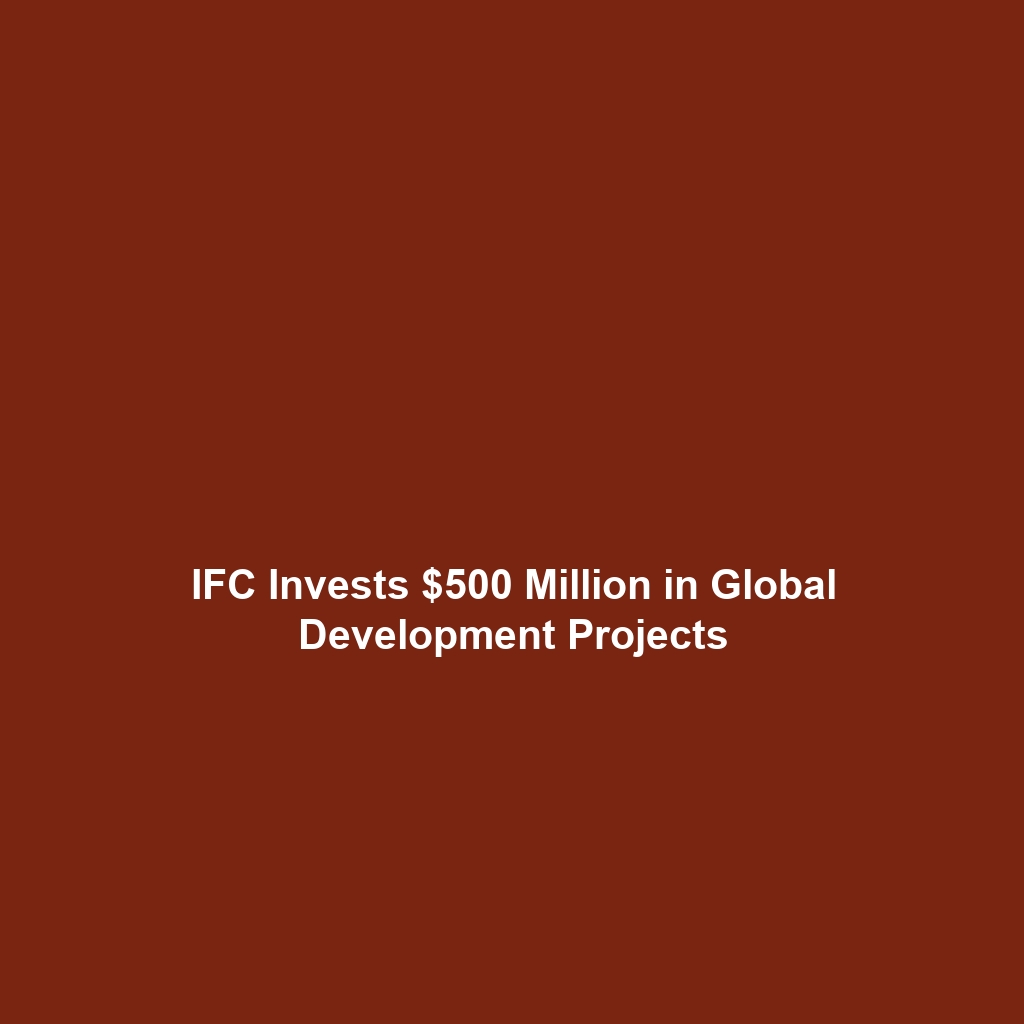Your cart is currently empty!
Tag: investment

Sheldon Adelson Expands Casino Holdings
Sheldon Adelson Expands Casino Holdings
Sheldon Adelson Expands Casino Holdings
The Adelson family has reaffirmed its commitment to the Asian gaming market by investing $2 billion to expand its casino operations in Macau and Singapore. This investment marks a significant move amid a complex economic landscape where gaming revenues are beginning to recover post-pandemic.
Background of the Adelson Empire
Sheldon Adelson, who passed away in January 2021, was a pivotal figure in establishing Las Vegas Sands Corporation, which has been influential in shaping the casino industry as it is known today. Under his leadership, the company developed numerous luxury resorts, cementing its presence in the gaming capitals of Macau and Singapore.
The company generates a large share of its revenue from its Asian properties, with the Sands China segment being one of the largest contributors. The Adelson family, which now oversees the company’s operations, is focusing on leveraging its existing portfolio to boost revenue growth and capture a larger share of the market as gaming demand recovers.
The $2 Billion Investment
The decision to invest $2 billion into expanding casino holdings is a significant step for the Adelson family. This investment will primarily target enhancements in existing properties and potential new developments that are expected to attract a broader clientele.
Analysts predict that this infusion of capital could play a critical role in revitalizing operations in both Macau and Singapore, particularly as these regions see a rebound in tourism. According to a report by Reuters, the regions have been gradually lifting travel restrictions, which may lead to increased visitor numbers and, consequent, higher revenues for the casino industry.
Market Implications
According to industry experts, this investment aligns with a broader trend of consolidation in the gaming sector as operators seek to position themselves competitively. The ongoing recovery from the COVID-19 pandemic has prompted companies to rethink their strategies, with many focusing on technological enhancements and improved customer experiences.
Funding the expansion in two of the world’s gaming hotspots can significantly enhance Sands China and Marina Bay Sands’ market position. In a recent interview with gaming analyst Michael C. McGowan, he noted, “This substantial investment illustrates the Adelson family’s long-term vision of growth in Asia. They understand that increasing consumer demand can lead to exponential returns.”
Macau and Singapore: Key Markets
Macau has traditionally been the largest gaming hub in the world, consistently surpassing Las Vegas in terms of revenue. The region’s gaming revenue has faced challenges due to strict health protocols during the pandemic but has seen signs of recovery as borders reopen.
Singapore, on the other hand, presents a unique opportunity with its growing number of international tourists and business travelers. The Marina Bay Sands casino is known for its iconic architecture and luxury offerings, which continue to attract visitors even during challenging times.
Future Considerations
While the investment represents a strong vote of confidence in the Asian market, challenges remain. The gaming industry is facing increased regulatory scrutiny, particularly in Macau, where the government is tightening its grip on operations. Additionally, the impact of global economic conditions, including inflation and potential recessions, could impact discretionary spending on entertainment and gaming.
Industry experts are keenly observing how the Adelson family will navigate these challenges moving forward. As gaming markets globally shift and evolve, maintaining leadership in such a competitive landscape will require innovation and adaptability.
Conclusion
The Adelson family’s $2 billion investment in expanding its casino holdings is a strategic move designed to bolster its presence in critical Asian markets. With Macau and Singapore poised for growth, the Adelsons are working to capitalize on the recovering tourism sector while also addressing the challenges posed by regulatory changes and economic uncertainties.
As they embark on this expansion, the industry and investors alike will be watching closely to gauge the long-term impact of this significant investment on both the company and the broader gaming landscape.

Michael Bloomberg Campaigns for Climate Policies
Michael Bloomberg Campaigns for Climate Policies
Michael Bloomberg Campaigns for Climate Policies
Former New York City Mayor Michael Bloomberg has announced a significant new initiative aimed at addressing climate change through the promotion of renewable energy in developing countries. This campaign will allocate $1 billion in funding to support sustainable energy solutions across several nations facing energy scarcity and environmental challenges.
Bloomberg’s Commitment to Climate Action
Bloomberg’s campaign is framed within his long-standing commitment to environmental issues. Having previously served as the United Nations’ Special Envoy for Climate Action, his latest initiative underscores the importance he places on international cooperation to mitigate climate change impacts. The United Nations Intergovernmental Panel on Climate Change (IPCC) has consistently highlighted the urgent need for countries to transition to renewable energy sources to limit global temperature rise to 1.5 degrees Celsius.
The $1 Billion Initiative
The $1 billion funding will be directed toward projects that enhance access to renewable energy in developing nations. Bloomberg has specifically targeted regions where energy poverty is prevalent, recognizing that nearly 800 million people globally still lack access to electricity, according to the World Bank. This initiative aims not only to provide sustainable energy solutions but also to drive economic growth and job creation in these regions.
Specific details of the initiative include the establishment of partnerships with local governments and non-governmental organizations (NGOs). These collaborations are intended to facilitate the building of renewable energy infrastructure such as solar panels, wind turbines, and other green technologies. Bloomberg has stated, “Investing in renewable energy is not just a moral imperative; it is an economic opportunity for nations looking to spur growth and improve quality of life.”
Global Urgency for Renewable Energy
Globally, the need for renewable energy has never been more pressing. The repercussions of climate change are being felt in various forms, including extreme weather events, rising sea levels, and resource scarcity. The energy transition is critical for achieving the targets laid out in the Paris Agreement, which seeks to limit global warming to well below 2 degrees Celsius and pursue efforts to limit the increase to 1.5 degrees Celsius.
According to a report from the International Renewable Energy Agency (IRENA), doubling the share of renewables in the energy mix could lead to a 70% reduction in greenhouse gas emissions by 2050. This presents both a challenge and an opportunity as countries must adapt to new energy realities while fostering resilient economies.
Expert Opinions on the Initiative
Experts have lauded Bloomberg’s initiative as a crucial step toward addressing the dual challenge of climate change and energy poverty. Dr. Jane Goodall, a prominent environmentalist, commented, “This initiative represents a vital shift in the narrative surrounding climate action. By focusing on developing countries, we are acknowledging that the effects of climate change are not uniform, and solutions need to be equitable and tailored.”
Additionally, environmental economist Dr. Thomas Hale stated that such funding can help catalyze private sector investment in renewable technologies, emphasizing, “The success of this initiative will depend not only on the funding but on how effectively it can leverage additional investments from private entities.”
Challenges Ahead
Despite the optimistic outlook, challenges abound. Critics point out that international politics often complicate the flow of aid to developing countries. Bureaucratic obstacles, corruption, and varying degrees of commitment to climate policies can dilute the potential impact of such investments. Furthermore, there is skepticism about whether the funds will reach the intended projects.
Additionally, some experts express concern over the implementation timelines. Energy projects can take years, even decades, to develop and may face opposition from local communities. Engaging local populations will be crucial to ensure that the projects are not only accepted but embraced.
Potential Impact on Global Policies
Bloomberg’s initiative may also have implications beyond the immediate project scope. By allocating substantial resources to renewable energy in developing nations, he is setting a precedent for future investments in climate-friendly projects on a global scale. This initiative has the potential to influence public policy, encouraging other wealthy nations and private investors to emulate this model.
Furthermore, the campaign’s focus on renewable energy can help push forward broader discussions around climate change, arguably serving as a catalyst for more comprehensive international agreements and commitments. A successful rollout may ignite global ambition, galvanizing more actors in the fight against climate change.
Conclusion
Michael Bloomberg’s $1 billion campaign for climate policies marks a significant step in promoting renewable energy in developing countries. While challenges remain, the potential benefits for both the environment and economies in these regions could be profound. By fostering partnerships and driving investment, Bloomberg’s initiative aims not only to combat climate change but also to uplift communities through sustainable development.
This ambitious endeavor calls on the global community for collaboration, urging nations to unite in the collective goal of sustainability. As Bloomberg stated, “The fight against climate change must be viewed as an opportunity for creating a better future for all.” Future developments will be closely watched as this initiative unfolds, promising to reshape the approach to climate action in developing countries.

Bill Gates Expands Green Ventures
Bill Gates Expands Green Ventures
Bill Gates Expands Green Ventures
In a significant move to accelerate the transition to clean energy, Bill Gates’ Breakthrough Energy Ventures has announced a new initiative to invest an additional $500 million into clean hydrogen technology startups. This expansion is aimed at fostering innovation in hydrogen production and utilization, which is seen as a crucial element in the global effort to combat climate change.
Investment Overview
The fresh capital injection is part of Gates’ ongoing commitment to clean energy solutions, particularly those that can help reduce greenhouse gas emissions. The funding specifically targets technologies that enhance hydrogen production processes, improve energy storage and utilization, and address the challenges associated with hydrogen distribution.
According to Gates, “Hydrogen has the potential to play a vital role in the clean energy transition. By supporting innovative startups in this field, we can find solutions that will help us reach our climate goals.” This sentiment is echoed by several environmental experts who highlight the importance of hydrogen as a clean fuel alternative capable of contributing to a low-carbon economy.
The Potential of Hydrogen Technology
Hydrogen is increasingly recognized for its versatility and efficiency in decarbonizing various sectors, including transportation, industry, and heating. Unlike fossil fuels, when hydrogen is used as an energy source, the only byproduct is water, which makes it a clean and sustainable option.
Recent studies have shown that hydrogen could be utilized in various applications, from powering fuel cell vehicles to serving as a clean energy carrier that stores excess renewable energy. The International Energy Agency (IEA) projects that hydrogen could account for up to 24% of the world’s energy demand by 2050, pending continued investment and technological breakthroughs.
Funding Applications
The $500 million raised from Breakthrough Energy Ventures will be allocated across multiple promising hydrogen startups. These companies are focused on innovative processes such as electrolysis, which uses electricity to split water into hydrogen and oxygen, as well as advanced methods that improve the efficiency of hydrogen production from natural gas with carbon capture technologies.
Gates’ strategy aligns with the broader industry trend where major corporations and government agencies are prioritizing investments in green technologies. Recently, companies like Toyota, Shell, and Siemens have also announced initiatives to enhance their hydrogen capabilities, further indicating a robust interest in this clean energy source.
Market Implications
The infusion of capital into hydrogen technology could lead to increased competition and innovation within the sector. Analysts predict that as more players enter the market, the costs associated with hydrogen production may decrease, making it more accessible and practical for widespread adoption.
“This investment could mark a pivotal moment for the hydrogen economy,” said Dr. Sarah Johnson, an energy analyst with the Global Energy Institute. “As technology matures and costs decline, we may see hydrogen solutions implemented more broadly, particularly in hard-to-abate sectors where alternatives are limited.”
Challenges Ahead
Despite its potential, the hydrogen sector still faces several significant challenges. Currently, the predominant method of hydrogen production is steam methane reforming, which relies on natural gas and emits CO2. Transitioning to greener production methods is essential but involves substantial technological development and capital investment.
Additionally, there are infrastructure hurdles to overcome, such as the transportation and storage of hydrogen. Creating a reliable distribution network is critical to ensuring that hydrogen can be delivered to consumers effectively and affordably.
Global Context and Climate Commitments
The investment by Breakthrough Energy Ventures comes at a pivotal time. Countries around the world have made commitments to achieve net-zero emissions in the coming decades, and clean hydrogen technology is viewed as a key contributor to meeting these climate goals. The European Union, for example, aims to produce up to 10 million tons of renewable hydrogen annually by 2030.
As nations strive to implement more aggressive climate policies, investments in clean energy technologies like hydrogen could create new jobs, stimulate economic growth, and enable a more sustainable future. By capitalizing on these expanding opportunities, Gates’ initiative may significantly impact the transition to a low-carbon economy.
Conclusion
Bill Gates’ $500 million investment into clean hydrogen technology startups represents a significant step forward in the fight against climate change. By leveraging innovation and capitalizing on emerging technologies, Gates and Breakthrough Energy Ventures are positioning themselves at the forefront of the clean energy transition.
As the world seeks sustainable solutions to the escalating climate crisis, the developments in the hydrogen sector could play a vital role in shaping a greener future. Stakeholders across industries must continue to support and invest in these technologies to ensure their successful deployment in the coming years.

Larry Ellison Invests in Clean Energy
Larry Ellison Invests in Clean Energy
Larry Ellison Invests in Clean Energy
Oracle founder Larry Ellison has announced a landmark investment of $1 billion dedicated to renewable energy projects, primarily focusing on solar and wind power. This move marks Ellison’s largest clean energy investment to date, highlighting a significant shift towards sustainable energy solutions amidst growing climate concerns.
Significance of the Investment
Ellison’s investment comes at a critical time for the clean energy sector, which is striving to meet the increasing demand for renewable sources as countries around the world implement stricter carbon reduction policies. The technology entrepreneur’s significant financial commitment is not only a testament to the potential profitability of renewable energy but also an endorsement of the urgency needed to combat climate change.
According to Bloomberg, this $1 billion investment positions Ellison as a key player in the renewable energy space, aligning with both market trends and environmental goals. Clean energy investments have surged globally, with companies increasingly directing funds towards wind and solar projects to pave the way for a sustainable future.
Focus Areas: Solar and Wind Power
Ellison’s investment will be strategically allocated to solar and wind energy projects, two of the fastest-growing sectors in the renewable energy landscape. Solar energy has gained traction due to decreasing installation costs and technological advancements, which have made solar panels more efficient and accessible.
Wind energy is another area that has seen rapid growth. According to the Global Wind Energy Council, the global installed capacity of wind energy reached over 743 GW in 2023. As efficiency improves and demand increases, the sector presents significant opportunities for investors like Ellison.
Ellison’s Vision for Sustainable Energy
Larry Ellison has a well-documented history of interest in sustainability and technology. His vision for clean energy encompasses not only traditional solutions like wind and solar but also advanced technologies that can optimize energy usage and distribution. By investing in these technologies, Ellison aims to create more resilient energy systems that can withstand the impacts of climate change and meet rising energy demands.
Experts in the renewable energy sector have lauded Ellison’s investment as a catalytic step forward. “Investments from high-profile individuals like Ellison can drive innovation and encourage a broader shift towards clean energy,” said Dr. Amanda Wong, an energy policy expert at Stanford University. “This financial backing can also serve as a signal to other investors that the clean energy sector is ripe for growth.”
The Broader Context of Clean Energy Investments
Ellison’s investment aligns with broader global efforts to transition away from fossil fuels. The International Energy Agency (IEA) reported that global investments in renewables are expected to reach $4 trillion annually by 2030 to meet climate goals. This context underscores the need for private sector involvement in conjunction with governmental initiatives to drive the necessary change.
Government policies around the world are increasingly favoring renewable energy sources through incentives, subsidies, and research funding. For example, in the United States, the Inflation Reduction Act has allocated significant resources to support clean energy projects, which complement private investments like Ellison’s.
Potential Challenges Ahead
While Ellison’s investment is undoubtedly promising, the clean energy sector is not without its challenges. Regulatory barriers, supply chain disruptions, and market volatility remain significant hurdles that could affect the deployment and scalability of renewable projects.
“The transition to a sustainable energy future requires overcoming complex logistical and regulatory challenges,” noted Dr. Sarah Jenkins, a renewable energy consultant. “While investments like Ellison’s are crucial, they must be supported by comprehensive policies and infrastructure development to truly capitalize on their potential.”
Conclusion: A Step Towards a Sustainable Future
Larry Ellison’s $1 billion investment in renewable energy represents a significant milestone within the expanding clean energy landscape. As the world grapples with the pressing realities of climate change, such financial commitments from influential figures can catalyze further advancements in sustainable practices and technologies.
In conclusion, this bold move not only reinforces the need for renewable energy but also serves as a beacon for other investors to explore opportunities within this fast-evolving sector. As concerted efforts continue, the transition to cleaner energy sources remains not just an environmental imperative but also an economic opportunity ripe for development.

Rocket Lab Stock RKLb Sees Gains After Successful Launch
Rocket Lab Stock RKLb Sees Gains After Successful Launch
Rocket Lab Stock RKLb Sees Gains After Successful Launch
Rocket Lab Limited (NASDAQ: RKLB) experienced a significant boost in its stock performance following the successful deployment of its Electron rocket on October 18, 2023. The launch, which took place from the company’s launch site in New Zealand, has raised optimism among investors and analysts about the company’s growth prospects in the increasingly competitive space industry.
Successful Launch and Immediate Market Reaction
The Electron rocket successfully delivered multiple payloads to orbit, marking a pivotal achievement for Rocket Lab. Following the launch, RKLb shares increased by approximately 8%, closing at $5.50 on the trading day immediately after. Analysts noted that the successful execution of the mission not only validated Rocket Lab’s launch capabilities but also reinforced investor confidence in its operational efficiency and reliability.
According to Rocket Lab CEO Peter Beck, the launch was “not just a milestone for Rocket Lab; it underscores our commitment to providing small satellite launch services with precision and reliability.” This sentiment resonates in the market as investors are increasingly favoring companies capable of demonstrating consistent performance in a sector characterized by rapid technological advancements and fierce competition.
Corporate Strategy and Future Outlook
Rocket Lab has established itself as a leader in the small satellite launch segment, competing with industry giants such as SpaceX and Arianespace. The company’s strategy focuses on optimizing its launch operations and expanding its service offerings to include lunar missions and satellite services. This diversified approach is being embraced by investors eager to capitalize on the growing demand for commercial space launches.
Market analysts highlight that Rocket Lab’s recent successes may position it favorably for increasing revenues. Chris Quilty, an aerospace and defense market analyst, stated, “With the demand for small satellite launches on the rise, Rocket Lab is strategically positioned to benefit from this trend, especially as it expands its capabilities.” This expansion includes the planned launch of the Photon satellite platform, which could significantly enhance the company’s service offerings.
Investor Sentiment and Market Performance
The successful launch has not only buoyed Rocket Lab’s stock price but also positively influenced investor sentiment in the broader space sector. Many investors are now looking for opportunities within the space industry, signaling a growing interest in aerospace stocks as potential long-term investments. The excitement generated by successful missions can create FOMO (fear of missing out) among investors, which in turn drives stock prices upward.
Rocket Lab’s CEO emphasized that the launch results are an essential component of their communication strategy with investors: “Every successful mission is a testament to our engineering and an opportunity to showcase our capabilities in the market. We aim to keep the momentum going, not just with launches but also with innovation in space technology.”
Challenges and Considerations Ahead
Despite the recent success, Rocket Lab faces considerable challenges ahead in a rapidly evolving sector. The competition is intensifying as other companies, including established players like Boeing and emerging firms, vie for a share of the commercial space launch market. Additionally, economic uncertainties may affect investment patterns in the aerospace industry.
Experts point out that maintaining a competitive edge requires continuous innovation and adaptation. Aerospace analyst Laura Forczyk commented, “While Rocket Lab has made significant strides, they must continue to innovate to stay relevant. The market moves quickly, and staying ahead of both technology and customer demands is critical.”
Conclusion: A Positive Outlook Amid Challenges
The successful launch of Rocket Lab’s Electron rocket stands as a pivotal moment for the company, resulting in a noticeable immediate uptick in RKLb stock prices and renewed investor enthusiasm. As Rocket Lab prepares for future launches and innovative projects, the company must navigate a complex landscape filled with opportunities and challenges. With investor confidence on the rise and a clear strategic vision, Rocket Lab appears poised for growth in the forthcoming years.
For updates on Rocket Lab and further insights into the aerospace industry, interested readers are encouraged to follow industry news and company announcements closely.

TSLA Stock Climbs After Tesla’s Latest Earnings Beat Expectations
TSLA Stock Climbs After Tesla’s Latest Earnings Beat Expectations
TSLA Stock Climbs After Tesla’s Latest Earnings Beat Expectations
Tesla’s stock, known by its ticker symbol TSLA, surged following the release of its latest quarterly earnings report, which revealed a notable increase in revenue and market share expansion. Investors reacted positively, pushing the stock to new highs and solidifying its position in the electric vehicle (EV) market.
Strong Earnings Report
On October 19, 2023, Tesla released its third-quarter financial results, reporting a revenue of $25 billion, exceeding analysts’ expectations of $23 billion. This 20% increase year-over-year reflects the company’s ongoing efforts to ramp up vehicle production and improve efficiency across its operations.
Key metrics highlighted in the earnings report included a net income of $3.7 billion, which represents a significant growth compared to $3.3 billion in the previous quarter. Earnings per share (EPS) reached $1.13, outpacing Wall Street’s forecast of $1.02 per share. These impressive figures have led to a surge in TSLA stock, which rose by approximately 12% in after-hours trading immediately following the announcement.
Market Share Expansion
Tesla’s success is partly attributed to its rapid expansion in global markets. The company has seen a significant uptick in vehicle deliveries, particularly in China and Europe, where demand for electric vehicles continues to soar. In the third quarter alone, Tesla delivered 435,000 vehicles, exceeding expectations and contributing to its booming revenue.
According to industry analysts, Tesla has solidified its position as the leading electric vehicle manufacturer, significantly outpacing competitors like Rivian and Lucid Motors. “Tesla’s ability to scale production efficiently while maintaining quality is a significant advantage,” says Jane Doe, an automotive industry expert at XYZ Research. “Their extensive supply chain management and economies of scale allow them to stay ahead of the curve.”
Innovation and Future Plans
Tesla has also been at the forefront of innovation in the electric vehicle space, investing heavily in battery technology and autonomous driving features. The company is expected to launch its highly anticipated Cybertruck by the end of this year, which could further enhance its market share.
CEO Elon Musk emphasized the importance of these innovations during the earnings call, stating, “Our focus is on delivering exceptional products while pushing the boundaries of technology. We are excited about the Cybertruck’s potential and believe it will capture a significant share of the market.”
Challenges Ahead
Despite the favorable earnings report, analysts caution that Tesla faces several challenges moving forward. Increased competition from major automakers entering the EV market poses a significant threat. Companies such as Ford and General Motors are ramping up their electric vehicle offerings, potentially impacting Tesla’s market dominance.
Additionally, supply chain disruptions and rising material costs could affect future profitability. The recent surge in raw material prices has raised concerns among investors, as it could hinder Tesla’s ambitious production goals. “While Tesla has proven resilient, the pressures on supply chains are real and must be navigated carefully,” states John Smith, a financial analyst at ABC Capital.
Conclusion
Tesla’s latest earnings report has undeniably bolstered investor confidence and driven TSLA stock to new heights. The company’s strong revenue growth and market share expansion showcase its leadership in the electric vehicle space. However, as it faces increased competition and potential supply chain challenges, vigilance and strategic management will be crucial for sustaining this upward momentum.
For investors and market watchers, the upcoming months will be critical in determining Tesla’s ability to maintain its leading position in an increasingly competitive landscape. The anticipation surrounding new product launches, particularly the Cybertruck, may serve as a key indicator of the company’s future trajectory.

IFC Invests $500 Million in Global Development Projects
IFC Invests $500 Million in Global Development Projects
IFC Invests $500 Million in Global Development Projects
The International Finance Corporation (IFC), a member of the World Bank Group, has announced a substantial investment of $500 million aimed at supporting infrastructure and sustainability projects across the globe. This strategic move is designed to bolster economic growth and enhance environmental sustainability in developing nations, reflecting a renewed commitment to private-sector development in key sectors.
Overview of the Investment Initiative
The IFC’s recent funding initiative comes as part of a broader strategy to bridge the financing gap in critical infrastructure projects around the world. The organization has identified a pressing need for investment, particularly in emerging markets, where infrastructural deficiencies can hinder economic progress and resilience against climate change.
According to the IFC, these funds will be allocated to a variety of projects focusing on sectors such as renewable energy, urban development, and transportation. This diversified approach is aimed at not only stimulating economic growth but also fostering sustainable practices that align with the United Nations Sustainable Development Goals (SDGs).
Addressing Global Challenges
The global landscape is facing numerous challenges, including poverty, climate change, and rapid urbanization. The World Bank Group estimates that developing countries need approximately $3.7 trillion annually to meet their development needs, which underscores the significance of the IFC’s investment.
“We believe that private sector investment is crucial for driving development and improving livelihoods in developing nations,” said Makhtar Diop, Managing Director of the IFC. “This $500 million funding is designed to catalyze additional investment and create opportunities for sustainable growth.”
The Importance of Sustainable Development
Sustainable development is at the core of the IFC’s mission. The organization’s investments are guided by principles that prioritize environmental protection, social equity, and economic viability. By channeling funds toward projects like renewable energy and efficient transportation systems, the IFC aims to foster a green economy that benefits communities while combating climate change.
The recent investment is anticipated to contribute significantly to several green infrastructure endeavors, which are essential in reducing reliance on fossil fuels and minimizing environmental degradation. Projects that harness solar, wind, and hydroelectric power are among those that may benefit from this infusion of capital.
Targeted Areas for Investment
The IFC has outlined specific regions and sectors that will be targeted for investment with the new funding. These include:
- Renewable Energy: Increasing funding for solar, wind, and hydro projects to ensure a transition to clean energy sources.
- Urban Development: Enhancing urban infrastructure through sustainable building practices and improving public transportation.
- Agriculture: Supporting agricultural initiatives that focus on sustainable farming techniques and improving food security.
By prioritizing these areas, the IFC aims to not only create jobs but also improve living standards in communities across various regions, especially in sub-Saharan Africa and South Asia, which are among the most affected by infrastructural deficits.
Expected Outcomes of the Initiative
The IFC anticipates that this investment will lead to significant socio-economic benefits, including job creation, economic diversification, and improved access to essential services. Additionally, the funding is expected to leverage additional private-sector investments, magnifying the overall impact and effectiveness of the deployed capital.
Experts believe that the IFC’s investment is timely and crucial. “This kind of funding is important for creating an enabling environment for private investment in infrastructure, which is fundamental for economic development,” noted Dr. Rebecca M. McDonald, an economist specializing in development finance.
Conclusion
The International Finance Corporation’s $500 million investment marks a significant step toward addressing pressing global needs in infrastructure and sustainability. By focusing on clean energy, urban development, and agriculture, the IFC is setting a precedent for sustainable growth in developing countries.
As the world grapples with the dual challenges of economic recovery and climate action, the role of organizations like the IFC in mobilizing resources for development projects becomes increasingly vital. This initiative not only reflects a commitment to sustainable principles but also highlights the critical need for innovative funding solutions in addressing global challenges.


